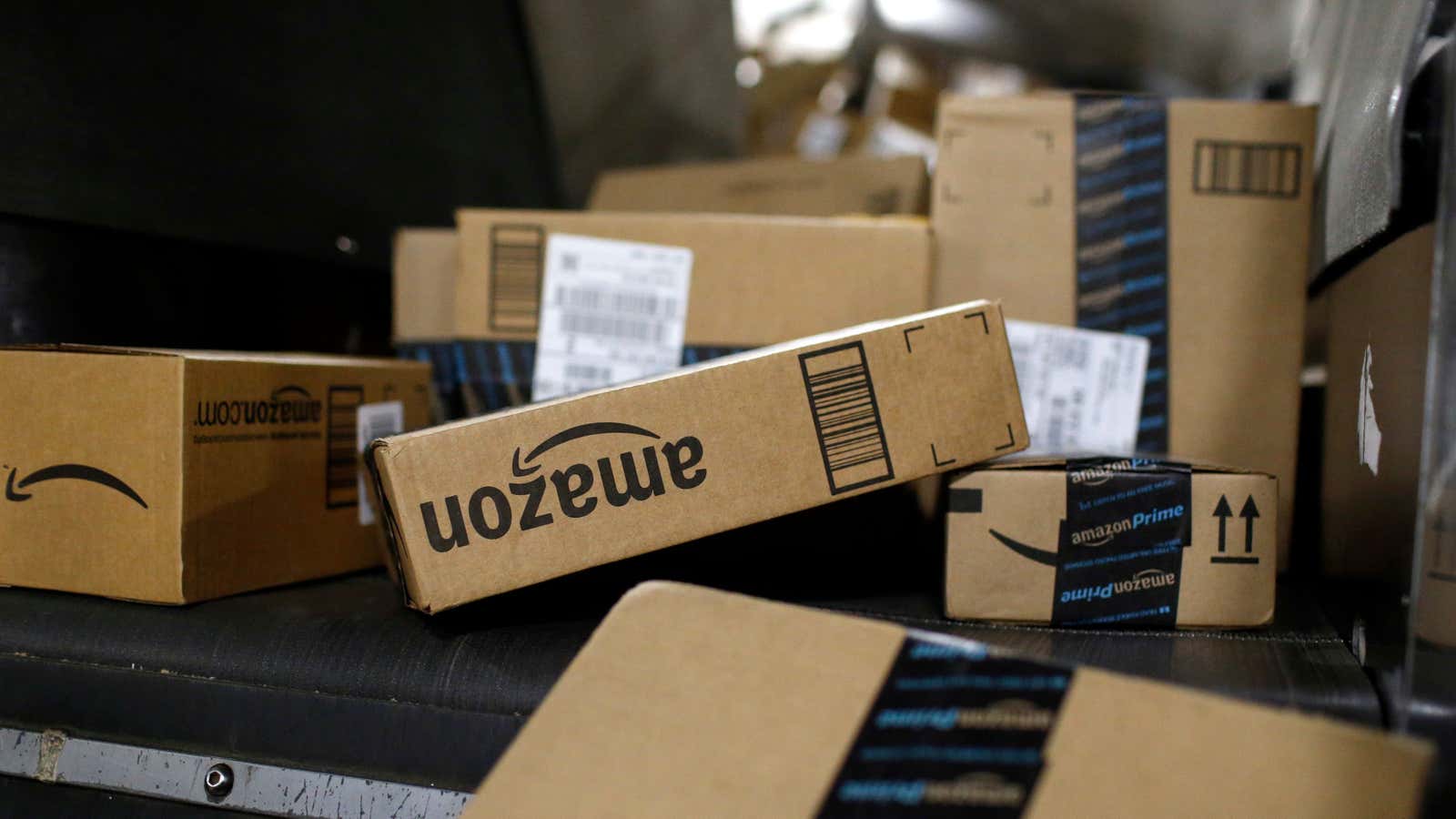One of the most surprising things Amazon CEO Jeff Bezos revealed in his April 18 letter to shareholders was that Amazon Prime now has more members than people who live in Germany.
The other was that more than half of the stuff sold on Amazon in 2017 came from third-party sellers, not Amazon.
Amazon’s third-party marketplace has helped thousands of small and medium-sized businesses reach shoppers online. But it also gets Amazon into trouble with both brands and shoppers over counterfeits and plainly inappropriate products. The bigger it gets, the bigger the problem is likely to get.
Here’s what the CEO says in his letter:
In 2017, for the first time in our history, more than half of the units sold on Amazon worldwide were from our third-party sellers, including small and medium-sized businesses (SMBs). Over 300,000 U.S.-based SMBs started selling on Amazon in 2017, and Fulfillment by Amazon shipped billions of items for SMBs worldwide…Our Global Selling program (enabling SMBs to sell products across national borders) grew by over 50% in 2017 and cross-border ecommerce by SMBs now represents more than 25% of total third-party sales.
The sheer size of that marketplace, though, makes it impossible for Amazon to police every product that goes up for sale. Earlier this year Amazon had to pull children’s clothing posted by a third party that read, “Slavery gets shit done,” set against a backdrop of Egypt’s pyramids.
In a statement, Amazon said all its marketplace sellers “must follow our selling guidelines and those who don’t will be subject to action including potential removal of their account.” But it highlighted how much Amazon relies on the sellers to follow the rules themselves.
The company has also been fighting against people selling counterfeits on its marketplace. Birkenstock has publicly attacked Amazon and pulled its business from the site over the issue, and it accused Amazon of being complicit in profiting off the fakes. Daimler AG, parent company of Mercedes-Benz, made a similar claim over sales of fake Mercedes wheel center caps. (Amazon isn’t alone in this; Alibaba has faced similar accusations overs its Taobao marketplace.)
Customers may or may not know they’re buying fake products. Either way, the brands claim it’s causing serious damage to their image and reputation.
Amazon’s dominance in US e-commerce, much of which comes from its giant marketplace, gives it considerable leverage, too. Nike didn’t sell through Amazon directly until recently. It signed up partly in hopes that working with Amazon would give it more control over the sea of Nike products being sold by independent sellers on the site.
Meanwhile, the bigger its third-party marketplace gets, the more Amazon profits, and the harder it gets to monitor what’s for sale.
